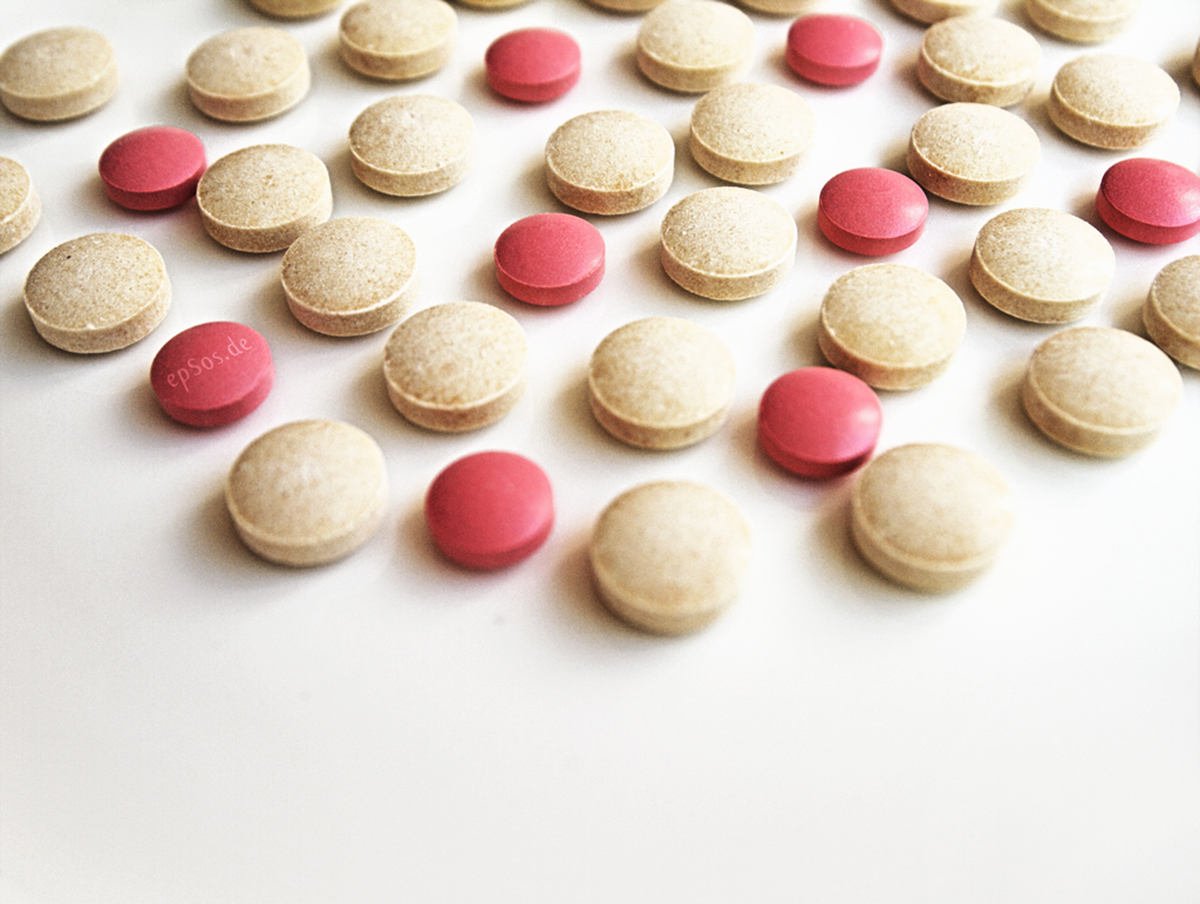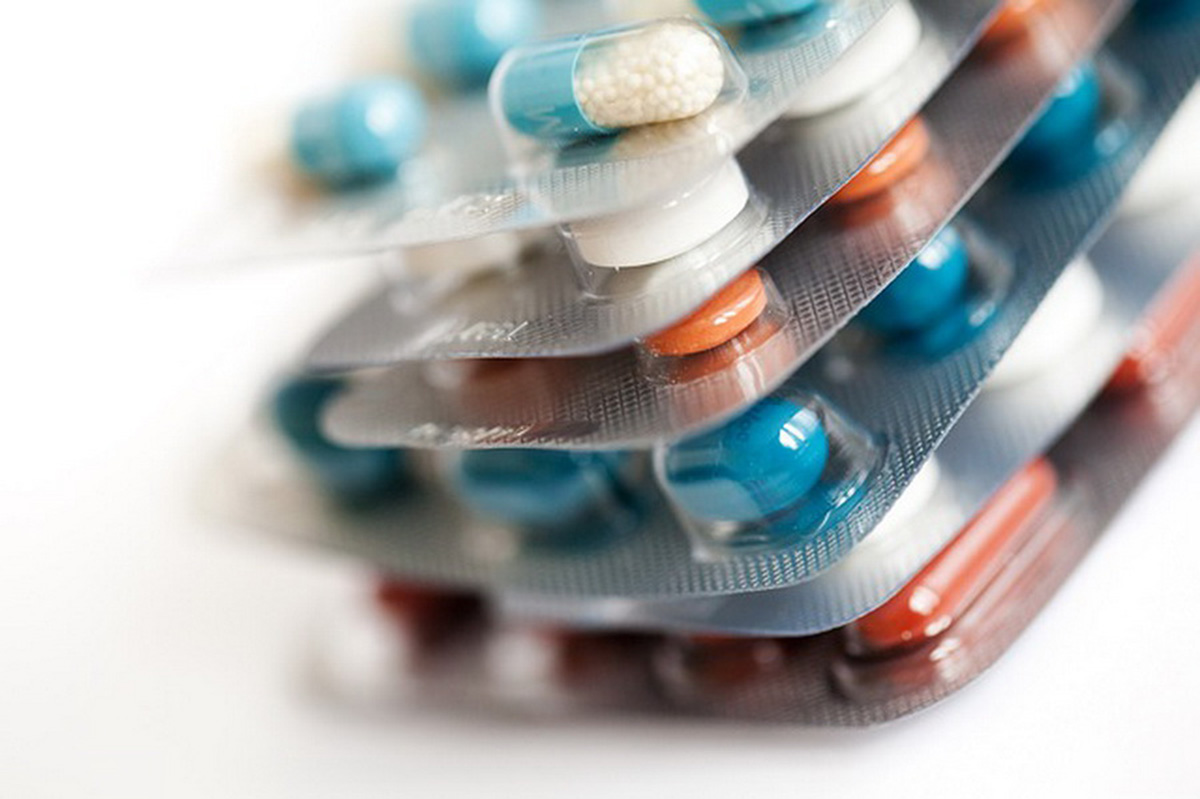There are many situations in which doctors prescribe broad-spectrum antibiotic therapy. A broad-spectrum antibiotic would be called for when there is a serious infection, it's obviously bacterial (antibiotics don't fight viruses), and there isn't time to run the tests that will tell which species of bacteria are causing the problem (since no antibiotic is effective against every kind of bacteria).
Just about universally, high doses of probiotics cause a potentially problematic side effect, diarrhea. That's because feces isn't just the body's waste. About one-third of the volume of human feces is probiotic bacteria, microorganisms that ordinarily live in the colon. When broad-spectrum antibiotics kill disease-causing bacteria, they also kill probiotic bacteria, and the result is watery stool and bowel movements five, ten, and sometimes fifteen or more times a day.

Many doctors advise their patients to take probiotic supplements when they take antibiotics to stop diarrhea. "You have an infection, so you need to take germs" may sound like strange advice, but probiotics are sometimes exactly what is needed. However, different strains of probiotic bacteria have different purposes, and the product that works best depends on why you need to take it. Here is a brief guide to which probiotics you need when you take antibiotics.
- Diarrhea after antibiotic treatment in children has been documented to respond to single-strain probiotics. One such probiotic strain is Lactobacillus GG, which is sold in North America and the UK under the trade name Culturelle. The products that work in adults, which typically contain multiple strains of antibiotics may also work; they just aren't as extensively tested.
- Diarrhea after antibiotic treatment in adults also responds to Culturelle. Two other combinations that work well in treating antibiotics in adults (that haven't been clinically tested for use in treating children as extensively) include Lactobacillus bulgaricus (the kind of bacteria used to make Bulgarian yogurt), Lactobacillus casei, and a non-disease strain of bacteria named Streptococcus thermophilus. This combination of probiotics is available in the over-the-counter product called Actimel. Another combination of probiotic bacteria that helps make this kind of diarrhea go away is Lactobacillus acidophilus LFCM plus Lactobacillus paracasei Lpc-37. These two bacteria plus two more are found in the over-the-counter product HOWARU Restore.
READ Overuse Of Drugs In Animal Farming Linked To Antibiotic Resistance In Humans
- Traveler's diarrhea usually responds to Culturelle, described above. If you take Culturelle before your trip, you may not need any antibiotics at all. If you get traveler's diarrhea that is bad enough to require antibiotics, Culturelle will help you get well faster. Traveler's diarrhea also responds to yeast found on the skins of mangosteens. You don't have to buy fresh mangosteens to get this yeast. Research studies find that the strain of this yeast that works best to restore bowel function is Saccharomyces boulardii lyo CNCM I-745, which is the species in the product Florastor.
- Diarrhea is also common in people who take a class of drugs called proton pump inhibitors for gastric reflux disease. The proton pump inhibitors include medications such as Omeprazole (Prilosec) and lansoprazole (Prevacid) and half a dozen others. Probiotics can also help with this kind of diarrhea. These drugs can also cause bloating, by encouraging excessive growth of some kinds of bacteria in the abdomen. Encouraging the growth of other kinds of bacteria that don't cause bloating can counteract bloat. The most helpful probiotic for these problems is Lactobacillus casei F19, which is found in the product NOW Foods Probiotic-10.
More Applications of the Right Probiotics for the Right Condition
Probiotics don't just help digestive function. There is mounting scientific evidence that probiotics are helpful in a considerable range of health conditions.
- Weight loss. Wouldn't it be nice if bacteria could do the work of dieting for you? A study in Japan found that overweight adults taking a probiotic called Lactobacillus gasseri LG2055 lost 4.6 percent of their abdominal fat in 12 weeks while making no changes in diet or activity other than taking the probiotic. Despite the fact that this probiotic treatment has been promoted by Dr. Oz, it actually works. The problem for consumers outside of Japan is that the exact strain of Lactobacillus that encourages weight loss is not found in products available in other countries (the products recommended by Dr. Oz). Bayer Colon Health and Fortify Women's Probiotic contain a closely related strain, reliably pass product testing by consumer watchdog labs, and are available at relatively low cost. They may work, although the clinical trials refer to a specific strain of the bacterium.

- Gum disease can be treated with probiotic lozenges and chewing gums. Gingivitis is caused by an organism called Porphyromonas gingivalis, which is offset by the probiotic bacteria Lactobacillus reuteri DSM 17398 and Lactobacillus reuterii ATC PTA5289. Bathing the gums in a mixture of saliva and the probiotic bacteria helps to shrink pockets of infection and improve attachment of the teeth, although these products have to be used over a period of months for a measurable benefit to result. These probiotics are packaged by a Swedish company for sale in the European Union under the brand name Prodentis. In North America the product is called PerioBalance.
- Irritable bowel syndrome (IBS) with diarrhea also responds to the probiotic bacterium Bifidobacterium coagulans MTCC 5856. It doesn't cure IBS overnight, but after it is taken for about 90 days it reduces diarrhea, abdominal pain, bloating, vomiting, and (in the professional experience of the author, although it's not noted in the research report) acid reflux. This precise strain of bacteria is found in a product made by the Sabinsa corporation called Lactospore. In the United States, you will most often find Lactospore marketed as a weight loss aid, in products such as ProbioSlim. Selling the product for this purpose isn't really deceptive, because it helps reduce bloat, but American companies are limited by regulations about how much they can say about how a product treats IBS.
If you don't care to take supplements, you can always eat yogurt. However, yogurt without live cultures won't do you much good. (Your immune system can interact with dead probiotic bacteria in ways that reduce anxiety and depression.) You need living bacteria in your system for maximum benefit. If you have IBS, however, you may want to be careful with yogurt. Some products like Dannon Activia are helpful for IBS with constipation, but they are not helpful for IBS with diarrhea.
READ Natural Antibiotics: Foods that Work as Antibiotics
It also makes sense to take some of these products proactively. Generally speaking, the more different kinds of probiotic bacteria you consume, the greater the protection you get. Garden of Life RAW Probiotic offers the greatest number of strains of any probiotic product readily available in North America and Europe.
- Boyanova L, Mitov I. Coadministration of probiotics with antibiotics: why, when and for how long? Expert Rev Anti Infect Ther. 2012 Apr. 10(4):407-9. doi: 10.1586/eri.12.24. No abstract available. PMID: 22512748.
- Robertson J. In children receiving antibiotics, does coadministration of Lactobacillus GG reduce the incidence of diarrhea? West J Med. 2000 Dec. 173(6): 397.
- Photo courtesy of epSos.de
- Photo courtesy of TheGloblaPanorama: www.flickr.com/photos/121483302@N02/14200527505
- Photo courtesy of epSos.de


Your thoughts on this